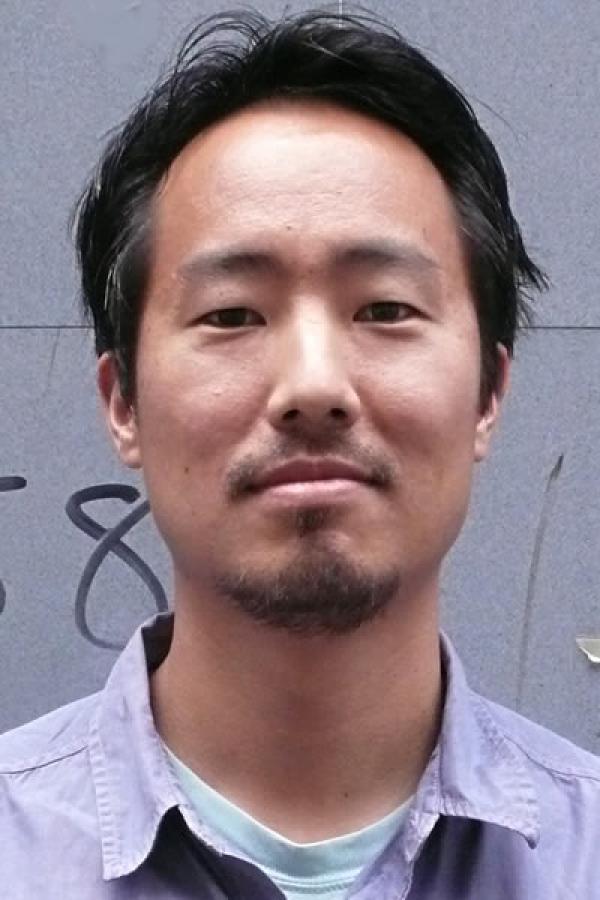Jeffrey Yang

Photo courtesy of Jeffrey Yang
Bio
Jeffrey Yang is the author of the poetry collections Vanishing-Line and An Aquarium. He is the translator of Nobel Peace Prize Laureate Liu Xiaobo's June Fourth Elegies and Su Shi's East Slope, and of a forthcoming anthology, Rhythm 226: Classical Chinese Poems. Yang is the editor of Birds, Beasts, and Seas: Nature Poems from New Directions and Time of Grief: Mourning Poems, and co-editor of the annual anthology of world literature, Two Lines: Some Kind of Beautiful Signal. His translation of Ahmatjan Osman's Uyghurland, the Farthest Exile, will be published in Spring 2015. Yang works as an editor at New Directions Publishing and New York Review of Books.
Translator's Statement
Time to experience the real life as elsewhere. In this case, a miraculous leave-taking from work to translate Bei Dao's marvelous autobiography of a lost Beijing. I'm most grateful to the NEA and judges and all parties involved for this heavenly manna. Without their benevolence, finding time to finish this project at this point in my life would most likely end in ritual seppuku. Thank you!
Preface: My Beijing by Bei Dao
[translated from the Chinese]
Toward the end of 2001, my father fell seriously ill and I returned to a Beijing I had been separated from for nearly thirteen years. Nothing could have prepared me for the unthinkable: Beijing had completely changed—everything was difficult to recognize, nothing familiar. I was a foreigner in my own hometown.
I was born in Beijing and spent half my life there—the momentous years of childhood and adolescence. My experiences of growing up are thus intimately linked with Beijing. And they've vanished as the city that once was has also vanished.
It was during my return that the impulse to write this book ignited: I would use the written word to rebuild another city, rebuild my Beijing; I would use my Beijing to refute the Beijing of today. In my city, time flows backward, spring revives dead trees, vanished smells are recalled with sounds and beams of light, demolished temples are restored with courtyard residences along hutong streets, tiled roof-rows rise in waves toward a low, low horizon-line, pigeon tail-whistles echo through the deep blue sky, children are well-acquainted with the seasons' transformations, residents sustained by a compass within. I open the city gate, welcome the drifting travelers of the four seas, welcome the homeless solitary souls, welcome all inquisitive guests.
This long-consuming task of rebuilding and reconstruction—I feel it's almost impossible to achieve. Memory involves selectivity, ambiguity and exclusivity, and can even subsist in a state of long-term hibernation. Yet writing truly awakens the process of remembering: within memory's labyrinth, one passage leads into another passage, one gate opens to face another gate.
Childhood and adolescence are of enormous significance in one's life; it can even be said that nearly everything that follows this period of time had been shaped or decided during those years. Looking back for the source of one's life is akin to a kind of prehistoric expedition, accompanied by whatever discovered happiness and sorrow. If escape and return are the two furthest points of a road, walking even further means drawing even nearer to childhood; and it's precisely this primary force that pushes me toward the edge of sky and sea.
I would like to give a special thanks to Cao Yifan—neighbor, friend, classmate—who not only plays a central role in this book, but whose astonishing faculty of memory corrected and filled in a large number of crucial details. And of course I must thank Li Tuo and Gan Qi, two “fussy readers” who always let me write as if treading on thin ice.
Hong Kong, 2010
About Bei Dao
Bei Dao (b. 1949), internationally recognized as one of the foremost poets of his generation, is also a master prose-stylist, as evident in his lyrical autobiography of his childhood and adolescence, City Gate Open Up (城门开). After more than five decades of unchecked industrialization and demolition and expanding urbanization, Beijing, the city of Bei Dao's birth, has undergone a deep rupture and now only exists in words, images, and memories. City Gate Open Up is a book not only of the poet as a child, coming of age in a bustling capital whose history can be traced over two thousand years, but of the wondrous metropolis itself, coming alive through the poet's luminous memories of its neighborhoods and residents, gardens and temples, schools and music and vibrant life-ways. As Bei Dao writes in his preface, “I will use the written word to rebuild another city, rebuild my Beijing; I will use my Beijing to refute the Beijing of today. In my city, time flows backward, spring revives dead trees, vanished smells are recalled with sounds and beams of light.” The poet opens the gates of his memory, the gates of the majestic city, welcoming “drifting travelers of the four seas … homeless solitary souls … all inquisitive guests.” He uses his extraordinary gifts as a poet and storyteller to create another map of Beijing, a beautiful, detailed memory palace of endless streets and corridors that mixes personal narrative and geography with the momentous history he lived through. The result is an autobiography as formalistically unique and lush as Mandelstam's Journey to Armenia, Danilo Kiš's Garden, Ashes, or Eileen Chang's Fallen Pagoda. It is also a eulogy for the poet's father, whose illness and death frame the whole of this extraordinary book.

